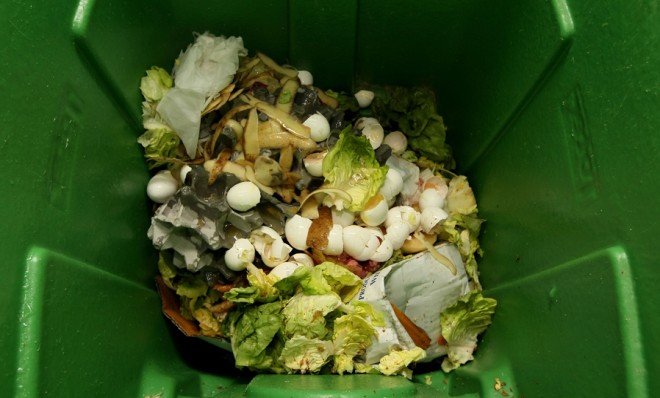Should Mayor Michael Bloomberg force New Yorkers to compost?
NYC produces 1.2 million tons of food waste a year. Bloomberg wants to turn it into energy

A free daily email with the biggest news stories of the day – and the best features from TheWeek.com
You are now subscribed
Your newsletter sign-up was successful
In a few years, New Yorkers could be fined if they don't separate their food scraps from the rest of their trash, thanks to a new food-composting program being introduced by Mayor Michael Bloomberg.
The goal: Divert 100,000 tons of food waste that would normally go into landfills every year and use it to generate electricity, reports The New York Times. Bloomberg touted the benefits of the program during his State of the City address in February:
We bury 1.2 million tons of food waste in landfills every year at a cost of nearly $80 per ton. That waste can be used as fertilizer or converted to energy at a much lower price. That's good for the environment and for taxpayers. [New York Times]
The plan is to usher the program in gradually over the next year on a voluntary basis, targeting 150,000 households, 100 high-rises, and 600 schools. The program should go citywide by 2015 or 2016, sanitation officials tell the Times.
The Week
Escape your echo chamber. Get the facts behind the news, plus analysis from multiple perspectives.

Sign up for The Week's Free Newsletters
From our morning news briefing to a weekly Good News Newsletter, get the best of The Week delivered directly to your inbox.
From our morning news briefing to a weekly Good News Newsletter, get the best of The Week delivered directly to your inbox.
The next step would be to decide whether it should be mandatory, a measure publicly supported by two mayoral candidates aiming to succeed Bloomberg, front-runner Christine Quinn and Public Advocate Bill de Blasio. If enacted, New Yorkers would be fined for not separating their food scraps from the rest of their trash — which was what happened 75,216 times over the last year when New York City residents failed to separate their recyclables.
The food-composting chain would look something like this: First, New Yorkers would dump their food waste — pizza crusts, apple cores, stale bagels — into plastic containers the size of picnic baskets. Those would be emptied into larger bins on the curb, and taken by trucks to a privately financed plant that would convert the waste into bio-gas.
Considering that one-third of New York City's trash consists of food waste, using it to generate power instead of shipping it to landfills in Ohio, Pennsylvania, and South Carolina could save the city $100 million a year, Ron Gonen, deputy sanitation commissioner for recycling and sustainability, tells the Times.
Reactions to the program have been predictably mixed.
A free daily email with the biggest news stories of the day – and the best features from TheWeek.com
"We're all for eco-friendly initiatives, but we're really not enthused about the stench of day-old meals wafting through our shoebox-sized, un-air-conditioned apartment, thanks," writes the New York Observer's Rebecca Hiscott.
Over at Fox News, Andrew Napolitano, a former New Jersey Superior Court judge, says Bloomberg is enacting the plan "because he likes to tell people how to live and he thinks he has a better model for urban living than our freedom of choice."
But many say its high time New York adopted a regimen that has been embraced by green-friendly cities like Seattle and San Francisco, as well as many countries in East Asia and Europe.
Keith Wagstaff is a staff writer at TheWeek.com covering politics and current events. He has previously written for such publications as TIME, Details, VICE, and the Village Voice.